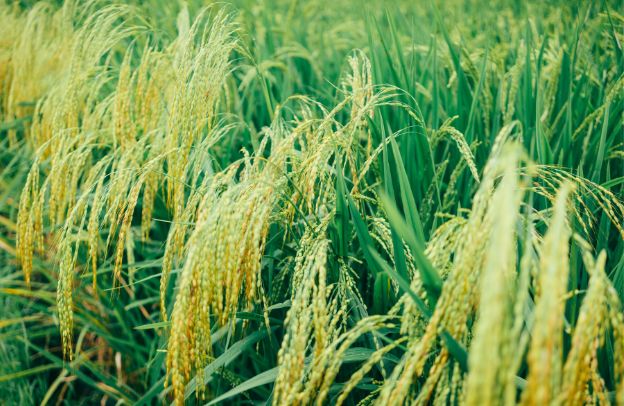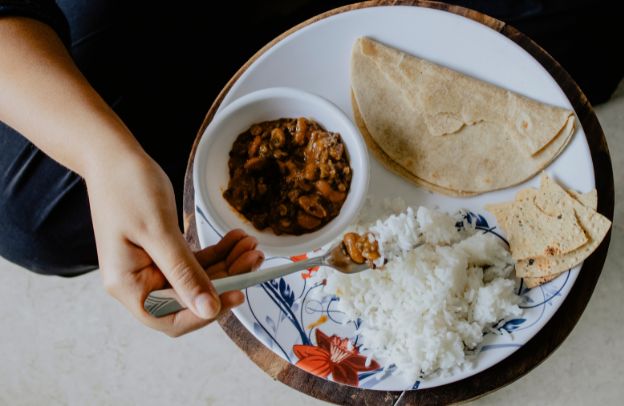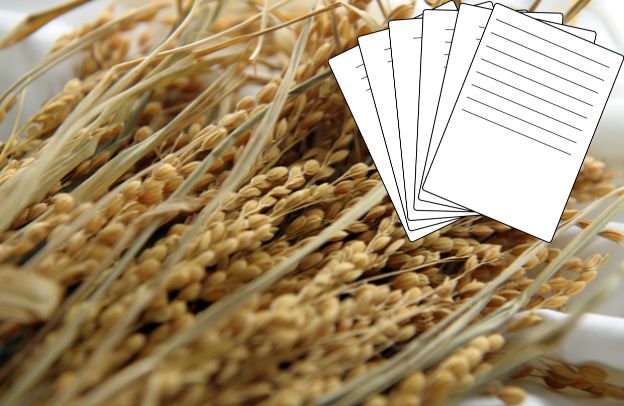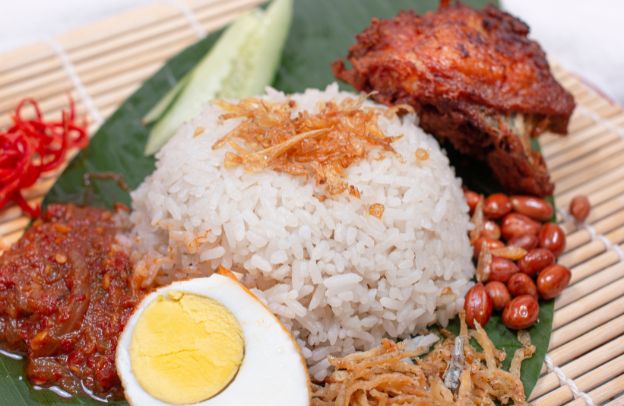Beyond Sustainability: Rice as a Key Ingredient for Transforming Diets and Agribusiness Opportunities

Picture this: fields stretching to the horizon, gleaming with golden stalks of rice under the African sun. For countless generations, rice has been more than just food; it has been a symbol of sustenance, tradition, and resilience. But in today’s ever-evolving economy, especially for you who is an African diaspora entrepreneur, rice offers an even more potent promise: the power to revolutionize diets, bolster sustainability, and create a ripple of business opportunities across communities. The question is: are you ready to harness it?
Want to learn more about storytelling? Start by downloading the first chapter of The Storytelling Mastery.
The Case for Rice in a Sustainable Diet
At the heart of any nation lies the power to feed its people. Rice, being a staple food for over half the global population, holds immense potential in Africa’s food security narrative. An article by the Food and Agriculture Organization titled “Rice-based Production Systems for Food Security and Poverty Alleviation in the Near East and North Africa” emphasizes the critical role of rice as a staple food for over half of the world’s population.
In Africa, rice is the fastest-growing food source and plays a key role in enhancing food security for low-income food-deficit countries (LIFDCs). In 2002, global rice production reached 575 million tonnes across 113 countries. However, this amount still fell short of consumption needs, leading to significant reliance on buffer stocks to fill the gap.
Today, approximately 800 million people worldwide still face hunger and malnutrition. Increasing sustainable rice production can be a game-changer, bolstering global food security and playing a significant role in poverty reduction efforts.
But it’s not just about tradition or consumption; it’s about smart, sustainable choices. Sustainable diets focus on nourishing bodies and protecting our planet, and rice’s story aligns seamlessly.
- Nutritional Value: Rice is a powerhouse of energy, packed with essential carbohydrates, proteins, and minerals. Unlike other grains, it offers versatility, affordability, and accessibility, making it vital for communities striving to balance nutrition and cost. Brown rice and fortified varieties further enhance its nutritional profile, offering more fiber and essential nutrients that support better health and combat malnutrition. Additionally, incorporating rice into diverse meal plans can boost food diversity, helping to combat the monotony of diets based heavily on a single food source.
- Community Impact: Consider that Nigeria alone produces around 8 million metric tons of rice annually, with demand still outstripping local supply. This gap signals an opportunity for investment, innovation, and community-driven solutions. By improving local rice production and engaging in its value chain, you can create new livelihoods and wealth. Strengthening rice farming can transform rural economies, creating jobs from farming to processing and distribution, empowering women and youth, and fostering local entrepreneurship. This approach not only addresses food security but also strengthens economic resilience.
- Economic Growth and Job Creation: The rice value chain is an engine for economic growth. Investments in rice processing facilities, irrigation systems, and logistics can have a significant multiplier effect. By modernizing farming practices and integrating technology, such as precision agriculture and mechanized tools, rice farming can increase yields and profitability. This, in turn, leads to job creation, skill development, and a reduction in rural poverty. Empowering farmers with access to affordable inputs, training, and technology can increase productivity and sustainability, providing a better standard of living and economic empowerment.
- Sustainability and Environmental Impact: Sustainable rice farming practices—such as water-efficient systems, organic cultivation, and crop rotation—can significantly reduce environmental impacts. Implementing eco-friendly methods, such as System of Rice Intensification (SRI), minimizes water use and boosts yields, protecting local water resources and preserving soil health. These practices not only ensure the long-term viability of rice production but also contribute to climate change mitigation by reducing greenhouse gas emissions.
- Technological Advancements: Leveraging technology can revolutionize rice farming in Africa. From mobile apps that provide weather forecasts and pest alerts to satellite technology that helps with crop monitoring, these tools can empower farmers with the information they need to make data-driven decisions. Mobile platforms can also connect farmers with buyers, cutting out middlemen and increasing their profit margins. Innovations in rice processing, such as the use of rice husk for bioenergy or the development of fortified rice grains, can expand the product line, adding value and creating new income streams.
- Policy and Collaborative Initiatives: Governments and organizations can play a pivotal role by enacting policies that promote research, protect farmers’ interests, and incentivize sustainable practices. Public-private partnerships and collaborations with international agricultural experts can introduce programs that support training, subsidies for inputs, and research into high-yield and climate-resilient rice varieties. Cross-border collaborations within the African continent and with diaspora networks can also bring new insights and investment to drive the industry forward.
By investing in sustainable rice production, Africa can reshape its food security landscape, support economic growth, and foster a resilient agricultural sector. This vision can only be realized through partnerships, education, and a unified commitment to innovation and sustainability.
Environmental Considerations in Rice Cultivation
Every coin has two sides, and rice cultivation is no exception. Traditional methods of production come with environmental concerns: methane emissions from flooded fields, soil degradation from chemical inputs, and water overuse. These challenges demand innovative solutions and therein lies another opportunity for African diaspora entrepreneurs like you.
The article from the UN Environment Programme, titled “New initiative aims to curb the toxic impacts of agriculture,”outlines the launch of the $379 million FARM (Financing Agrochemical Reduction and Management Programme) initiative.
Led by UNEP and supported by the Global Environment Facility (GEF), the program involves the governments of Ecuador, India, Kenya, Laos, Philippines, Uruguay, and Vietnam.
This initiative seeks to combat the pollution caused by pesticides and plastics in agriculture, which contribute to human health risks, environmental degradation, and climate change.
The article highlights that nearly 4 billion tons of pesticides and 12 billion kg of agricultural plastics are used annually, resulting in toxic impacts such as pesticide-related deaths, ecosystem damage, and air pollution.
FARM aims to reduce these effects by supporting farmers’ transitions to low- or non-chemical alternatives and advocating for policy and financial changes that incentivize sustainable practices.
The program is projected to prevent over 51,000 tons of pesticide use and 20,000 tons of plastic waste annually, reduce carbon emissions by 35,000 tons, and protect over 3 million hectares of land. It represents a significant step in fostering a more sustainable, equitable, and resilient food system.
Transformative Methods for Sustainable Rice Production
- Natural Fertilizers: Replacing synthetic inputs with compost and manure not only restores soil health but also minimizes pollution.
- Pest Management: Integrated pest management reduces pesticide use and fosters biodiversity. Imagine converting a rice farm into a balanced ecosystem where each plant and insect has a role.
- Efficient Water Use: Technologies like Alternate Wetting and Drying (AWD) slash water usage by up to 30% while cutting down methane emissions.
Storytelling to Revolutionize Agribusiness
Now, as an entrepreneur, it’s essential to understand that facts alone won’t sell your rice or your mission. Humans are wired for stories. Your journey—returning to ancestral lands to invest, innovate, and uplift—has the potential to connect emotionally with consumers. Share why your practices matter. Weave narratives of generational wisdom meeting modern innovation, and you’ll find people not only want your products; they’ll champion your cause.
See also Agribusiness Marketing Strategy in 2024: Harnessing the Power of Storytelling to Drive Success
Collaborate to Thrive: The Power of Diaspora Unity
No one builds alone. Across the African diaspora, there is a wealth of knowledge, resources, and untapped potential waiting for entrepreneurs like you to activate it. Whether through joint ventures, mentorship, or knowledge exchange programs, unity is key.
Consider creating business consortiums that link producers with distributors, marketers, and investors globally. Such collaborations can amplify each other’s strengths and open doors that were once sealed shut.
Continuous Learning: Elevate Your Agribusiness Skills
Knowledge is your most potent tool. To navigate the complexities of agribusiness and drive sustainable change, ongoing learning is non-negotiable. Platforms like AClasses Academy offer tailored courses for African diaspora entrepreneurs focusing on self-improvement, marketing strategies, storytelling, and agribusiness insights.
With a constantly evolving market landscape, upskilling ensures you remain relevant and effective.
Tips for Success in the Agribusiness Sector:
- Learn From Best Practices: Study successful agribusiness ventures in Africa and across the diaspora. Take notes on what worked and what didn’t.
- Master Storytelling: Craft authentic, emotionally compelling narratives about your product, farm, or community. People remember stories, not statistics.
- Embrace Innovation: Be open to adopting new technologies, from crop sensors to precision farming tools.
- Network Relentlessly: Build and nurture relationships across the agribusiness spectrum—from farmers’ cooperatives to international investors.
Opportunities for Small and Medium-Scale Farmers
As a diaspora entrepreneur, your investment in sustainable rice production can uplift small and medium-scale farmers. These individuals form the backbone of agriculture in Africa. By engaging with them, offering resources, or collaborating, you can create a ripple effect of positive change.
Real-Life Example: Empowering Farmers in Nigeria
The Nigerian government’s Anchor Borrowers’ Program has shown that providing farmers with inputs, training, and financial backing can significantly boost yields and incomes.
Imagine combining initiatives with diaspora expertise and market access. The result? Stronger communities, profitable ventures, and a healthier planet.
Tying It All Together: Rice, Sustainability, and Impact
Ultimately, your journey in agribusiness goes beyond profits. It’s about making a lasting impact, feeding populations sustainably, and preserving the environment for future generations. By embracing sustainable rice production and promoting collaboration within the global African diaspora, you’re shaping the narrative for a better tomorrow.
The road isn’t without challenges, but the reward? A thriving agribusiness rooted in values, heritage, and innovation. Together, we can transform rice from a staple food to a symbol of resilience, sustainability, and collective power.
See also Creating a Lasting Legacy: How Purpose-Driven Entrepreneurs Build Enduring Impact
Call to Action: It’s Time to Act.
So, are you ready to seize this opportunity? Take a step today. Research, collaborate, share your story, and elevate your skills. As a diaspora entrepreneur, you have a unique position to drive meaningful change and uplift communities on both sides of the ocean.
Want to learn more about storytelling? Start by downloading the first chapter of The Storytelling Mastery.





